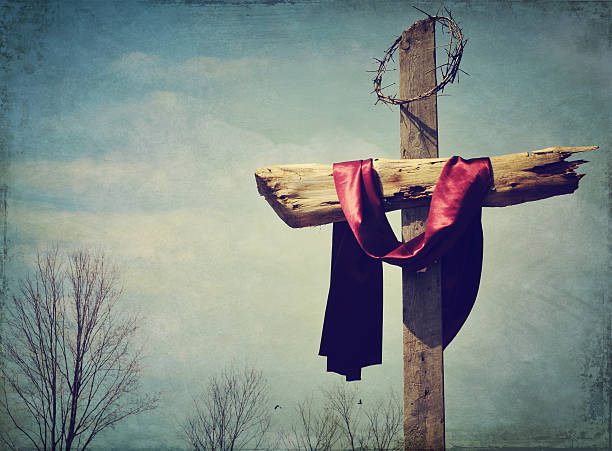Good Friday and Scapegoat

The connection between Good Friday and the concept of a scapegoat is deeply rooted in Christian theology. Good Friday commemorates the crucifixion of Jesus Christ, which is seen as the ultimate act of sacrifice. In this context, Jesus is often viewed as a scapegoat because he took upon himself the sins of humanity and suffered in their place, leading to redemption and atonement for believers.
This parallels the ancient Jewish ritual where a goat, the scapegoat, would be symbolically burdened with the sins of the people and sent into the wilderness, as described in the Bible. The New Testament teaches that Jesus’ death should be understood in light of the Day of Atonement, where the scapegoat was a central figure.
The idea of the scapegoat in Christianity, especially on Good Friday, prompts reflection on themes of innocence, sacrifice, and the mechanisms of societal violence and redemption. It’s a powerful metaphor for understanding the significance of Jesus’ sacrifice and the hope for forgiveness and new beginnings that it represents for Christians.
Jump to: richdeath
Good Friday
Good Friday is a significant day in the Christian faith, commemorating the crucifixion of Jesus Christ and his death at Calvary. It’s observed during Holy Week as part of the Paschal Triduum on the Friday preceding Easter Sunday, and may coincide with the Jewish observance of Passover. It is a day of mourning in church, with special services and often fasting and prayer. The name “Good Friday” comes from the old meaning of “good” as something holy or sacred.
Embed from Getty ImagesGood Friday definition
Good Friday is observed by Christians as the solemn commemoration of the crucifixion of Jesus Christ. It falls on the Friday before Easter Sunday and is a day of sorrow, penance, and fasting. The date of Good Friday varies each year, as it is determined by the lunar calendar and the timing of Passover, reflecting the biblical account of the event. It is a part of Holy Week and is significant for being a time of reflection on the sacrifice and suffering of Jesus, leading to his death on the cross.
What is a scapegoat?
A scapegoat is a person or group unfairly blamed for problems not of their own making. The term originates from an ancient ritual described in the Bible, where a goat was symbolically burdened with the sins of the people and then sent away into the wilderness, carrying away the guilt. In modern usage, it refers to someone who is made to take the blame for the faults or incompetence of others.
What are some examples of scapegoating in history?
Scapegoating has occurred throughout history, often during times of crisis or social tension.
- Andora: In Greek mythology, Pandora was the first woman created by the gods and was given a jar (later called “Pandora’s box”) containing all the evils of the world. When she opened it, she inadvertently released these evils, but she was also a scapegoat for humanity’s hardships.
- Alfred Dreyfus: A French Jewish army officer, Dreyfus was wrongfully convicted of treason in 1894. His trial and conviction were marred by anti-Semitism and judicial errors, and he was later exonerated.
- Leon Trotsky: After the Russian Revolution, Trotsky was expelled from the Communist Party and later from the Soviet Union itself. He was used as a scapegoat for the failures of the Soviet government.
- Immigrants: Throughout history, immigrants have often been scapegoated during times of sickness or economic hardship. For example, Chinese immigrants were blamed for various diseases in the 19th and 20th centuries.
- Jewish Communities: In medieval Europe, during times of plague or disease, Jewish communities were frequently blamed and persecuted.
These examples show how scapegoating has been used to deflect blame and responsibility from those in power to marginalized or minority groups.
How does scapegoating affect society?
Scapegoating can have profound and detrimental effects on society.
- Damage to Relationships: It fosters mistrust and animosity, deteriorating interpersonal relationships and community cohesion.
- Perpetuation of Injustice: By misplacing blame, scapegoating allows the true culprits to evade accountability, perpetuating systemic inequalities and injustices.
- Social Division: It can create or exacerbate divisions within society, as groups are pitted against one another based on unfounded blame.
- Psychological Harm: Individuals who are scapegoated may suffer from reduced self-esteem, emotional distress, and a sense of alienation.
- Prejudice and Discrimination: Scapegoating can lead to widespread prejudice and discrimination against certain groups, often based on ethnicity, religion, or social status.
